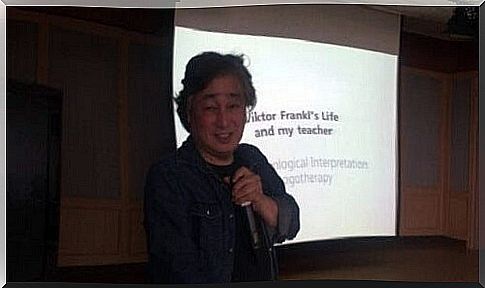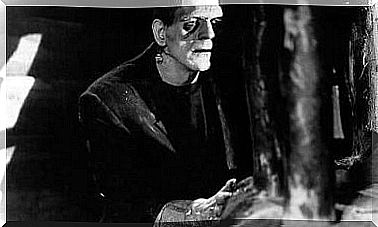Existential Positive Psychology According To Paul Wong

Many people believe that positive psychology has a “dark side”. An almost exclusively focus on positive emotions, such as happiness, enthusiasm or hope, can lead to neglect of the negative parts of life. In response to that criticism, a new approach emerged a few years ago called existential positive psychology. The Canadian psychologist Paul Wong is the leader of what he calls the “second wave” of the positive psychology movement.
More than a reformulation of the original, this approach seeks to increase awareness that accident exists and that experiencing it is quite normal. After all, as Miguel de Unamuno so aptly wrote: “Suffering is the substance of life and the root of personality, for it is only suffering that makes us persons,”
What Dr. Paul Wong and his theory propose is a new way of understanding Martin Seligman’s 1990s model by understanding the biological foundation of mental well-being and happiness.
It’s time to put these hedonistic feelings aside, navigate the turbulent waters of life, and find your own direction, meaning, and purpose. Let’s dive right into it.

Basics of Existential Positive Psychology
In lectures, Dr. Wong often says that our world is chaotic and that we live in difficult times. He believes it requires a new therapeutic approach. Existential positive psychology tries to help people achieve well-being and balance, so that we can cope with daily, repeated challenges.
One of the most common criticisms of positive psychology and theorists such as Seligman or Mihaly Csikszentmihalyi is that they focused exclusively on the healthy side of people. Aspects such as creativity, enthusiasm, hope and emotional intelligence push us to be our best. If you thus work to develop these abilities, you can achieve what Abraham Maslow described as self-realization.
But what happens if you feel lost? What if you are dealing with depression due to the death of a relative or a difficult cohabitation? You can not just turn on a switch and feel enthusiastic or creative because your mind is immersed in depression and despair.
This is where the principles of Dr. Paul Wong’s existential positive psychology come into play.
Courage and responsibility to deal with adversity
Existential positive psychology does not try to diminish the value of the original theory of positive psychology. Moreover, those who believe in the former know that positive psychology is often interpreted in overly simplified terms. It becomes a kind of theory of “magical thinking”, where thinking about what you want is enough to make it happen. The very popular film and book called The Secret by Rhonda Byrne, is a good example of this.
Dr. Wong, on the other hand, writes that each individual can take advantage of the courage they need to face adversity. Just like everyone else , you are able to develop a mental coping mechanism based on resilience. The ability to find meaning in your circumstances, whatever they are, and be happy, is possible for everyone.
Thus, you can see that existential positive psychology does not undermine the value of happiness or hope. Positive emotions are truly the engine of humanity. However, you also need to make room for negative emotions and try to understand them.
Existentialism is the cornerstone of Paul Wong’s theory
The brilliant part of this theory, originally published in 2011, is that it brings an existential perspective to positive psychology. The seemingly simple addition gives the original theory greater meaning and usefulness. After all, philosophers and existential psychologists remind us that life is made up of paradoxes, problems, and struggles we all face.
Dealing with these aspects of life is about how we acquire important psychological resources. Facing adversity makes you more courageous, helps you see the value of effort, teaches you how to overcome obstacles and strengthens your commitment to yourself and your life. Existential positive psychology claims that authentic happiness only becomes meaningful when you are familiar with suffering and you know how to face it.
Therefore, one of the foundations of existential positive psychology is to provide tools and resources to people to learn to cope with loss, fear of death, disappointment, anxiety, despair, etc.

Viktor Frankl and the search for meaning
According to Paul TP Wong, positive psychology must return to its existential and humanistic roots. Only then will it become meaningful and transcendent. In addition, you can not help someone rebuild their reality to achieve happiness and well-being if you do not guide them through a process. Viktor Frankl claimed the search for meaning is so important.
As you struggle through a sea of uncertainty and adversity, you need a light. Something to focus on, a refuge, the thing that gives the fight meaning and motivates you to keep fighting. To do so, Dr. Wong encourages you to ask yourself the following questions:
- Who am I? What defines me?
- How could I be happier? What does a “good life” look like for me?
- What’s my calling? What could I dedicate my life to and feel good about?
- Am I making the right decisions?
- Where do I belong? Why do I feel so alone in the world? Where can I feel accepted? Where is my home?
- What does my life mean?
Paul Wong: Embrace the fight
In conclusion, existential positive psychology is a valuable theory that gives new life to important concepts that were part of the development of psychology itself. Dr. Wong acknowledged that these basic aspects are important. However, he also knew that they had to be worked on in light of the challenges and uncertainties of our world today.
Do not forget your purpose in life and leave room for all your emotions, even those that cause pain or discomfort. Remember that it is the emotions that give wisdom. Knowing how to deal with them makes you a stronger and more capable person.









